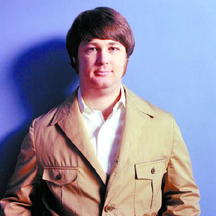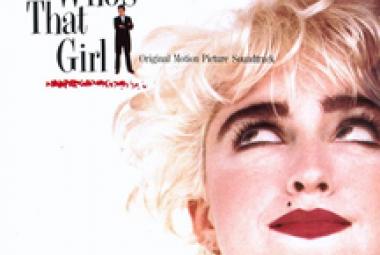Brian Wilson was the bandleader and primary songwriter of the Beach Boys; writing for Allmusic, William Ruhlmann says that Brian Wilson "is arguably the greatest American composer of popular music in the rock era". In the beginning, there were fun songs about surfing and cars and girls, as well as a (more or less) friendly rivalry with Jan & Dean that prefigured the more contentious Beatles vs. Stones debates. It is no secret that Jan Berry – a wunderkind in his own right – wasn't happy that the Beach Boys copied the surf sounds that Jan & Dean pioneered.
When the British Invasion came along and seemed to sweep away the surf music scene, Brian Wilson masterminded a response album in 1966 by the Beach Boys that matched the Brits in every way: Pet Sounds. The hit songs from the album – "Wouldn't it be Nice", "God Only Knows" and "Sloop John B" – don't begin to convey how well Pet Sounds works as an album. The record was hugely influential and (in a nice twist) was an even bigger hit in England than it was in the USA.
On the heels of Pet Sounds, the Beach Boys released one of the most incredible singles by anybody in the mid-1960's: "Good Vibrations". The song was originally intended as one of the tracks on Pet Sounds, but Brian Wilson knew that he would never be able to complete the song to his satisfaction in time for the album's release.
John Bush in Allmusic says of the background behind this classic: "'Good Vibrations', the Beach Boys' 1966 entry into the best-single-of-all-time sweepstakes, announced the coming era of pop experimentation with a rush of riff changes, echo-chamber effects, and intricate harmonies, plus the very first theremin ever heard on a pop record. The natural grace of the song belied the months of recording and mountain of tape reels it required, however. Though Brian Wilson's self-described 'pocket symphony' was his masterpiece, its creation effectively put the coda on his production career, and he was never the same again. . . . In the end, 'Good Vibrations' cost over 50,000 dollars to produce, making it one of the most expensive singles recorded up to that point."
* * *
Brian Wilson was none too happy that Pet Sounds wasn't a bigger hit; though the album peaked at #10 in the American album charts (and #2 in the U.K.), "Good Vibrations" was #1 with a bullet in the U.S. and U.K. alike. Thus, in August 1966, Wilson began working feverishly on another album that would be called SMiLE to prove beyond doubt that Americans could outdo the English.
Brian Wilson brought in a talented collaborator for his project, Van Dyke Parks. In Allmusic, William Ruhlmann says of him: "In a field where the term 'genius' is handed out freely, Van Dyke Parks is the real article. As a session musician, composer, arranger, lyricist, and singer, he's contributed significantly to several decades' worth of inimitable masterpieces credited to other artists, as well as generating two or three masterpieces of his own."
Terry Melcher put Van Dyke Parks in touch with Brian Wilson; Wilson needed a lyricist who could match his musical visions that he was struggling to get on tape. Just imagine: an album full of "Good Vibrations"-level music! John Bush continues: "[Brian Wilson] labored over every note and, more than that, every tone, often asking his musicians or the Beach Boys themselves to revise when the results didn't match his conception of the music going on inside his head. Such care and control produced music that was far beyond Pet Sounds, and when the impressionistic themes and lyrics of collaborator Van Dyke Parks were added, SMiLE began shaping up as the most unique LP ever produced by a pop group."
* * *
SMiLE was never completed. Part of the reason might have been the limitations of recording studio technology in those days; Brian Wilson was already becoming reclusive, and a decade later, he might have been able to put the album together privately and then spring it on the world, fully born – the way that studio wizard Tom Scholz was able to do with the original Boston album in 1976. Brian Wilson might have been over-reaching also, and there is little doubt that the pressure of the months of recording sessions contributed to the decades of drug addiction and mental illness that plagued Brian Wilson after the SMiLE recording sessions collapsed in early 1967.
The Beach Boys soldiered on and became one of America's most beloved rock bands, with President Ronald Reagan dubbing them "America's band" in 1983. Over this period, some pieces of what would have been the SMiLE album – authorized and otherwise – began dribbling out. "Sail on, Sailor" was released in 1973 and was the only Beach Boys single to crack the Top 50 for nearly a decade (between 1968 and 1976).
Brian Wilson tried on several occasions to jump-start a solo career; one time, his abortive attempt coincided with the release of one of the Beach Boys' biggest latter-day hits, "Kokomo". I wish I could remember the time period or the beach town that I was in (maybe Santa Cruz, California) where there were xeroxed fliers being handed out about an appearance by Brian Wilson in a small club, as though he were some local guy just starting out.
In the early 2000's, Brian Wilson started having some success and recognition again; so in 2004, he set about presenting SMiLE at long last. Wilson debuted the album at a live concert at the Royal Festival Hall in London on February 20, 2004; and the release of Brian Wilson Presents SMiLE as a solo album followed in April 2004.
In October 2011, under the name The SMiLE Sessions, the original recording sessions were boiled down into what the SMiLE album might have sounded like in 1967. Several official releases of the package have already been made, including various Deluxe Editions. Oddly, the recreated album itself is in mono – supposedly because that is the way that Brian Wilson would have wanted it – even though stereo versions are available on 80% of the songs. All editions include a second CD that feature bonus tracks and stereo renditions.















